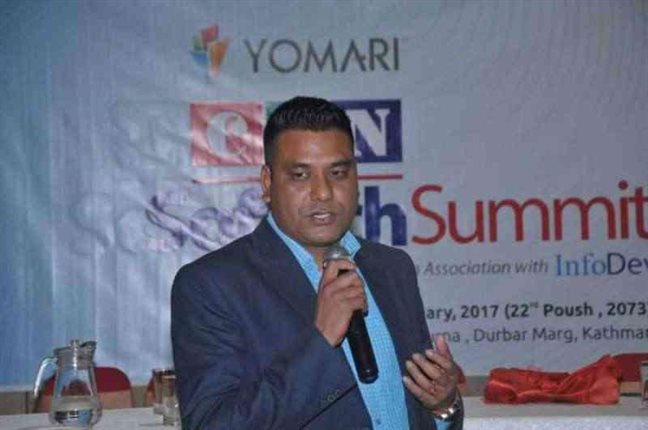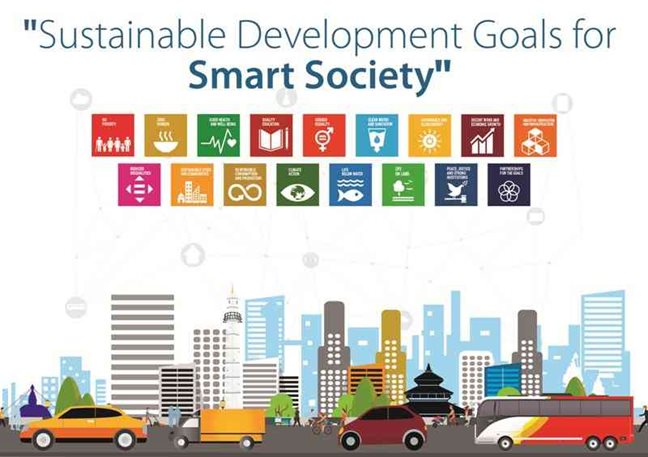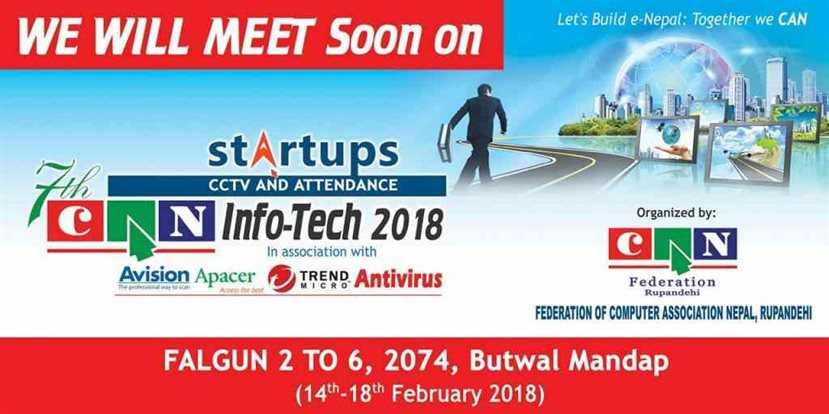Myth Or Reality Of Software Industry In Nepal
Rajendra Man Banepali presenting paper in CAN SoftTech Summit 2017.
Offsetting complexity of software conflict shaped from encounter of human intervention in development of software technology in Nepal, this article – presented in CAN Soft Tech 2017 – explores possible and sustainable ways as solutions introducing new way to explore challenges as myth or reality check.
Before to begin, I would like to set a context of software industry in Nepal. Rightly said – software industry in Nepal is a questionable in terms of maturity and its recognition in global context. In recent development in industry, Nepal is moving to product based software development than project base. We are pushing Nepali Software industry forward to maturity equipping actors – Software Company, consumer, and developers – of Nepali market including legitimacy. There are few myths which turn into reality these days.
In most of start-up or growing companies, they moved with high operating cost of supporting software in deployment and configuration stages. This is myth until it does not solve and turns into reality then. The myth might be just because of selection of inappropriate development tools which are very important for sustainable development of software companies. Research and development are best practice to explore possible solutions in a context of individual companies. That was a story during my experience in one of the leading software companies in Nepal. One of the companies was using incompatible database for their project which was hard to configure during deployment. Later on, product engineering team changed database into Relational Database Management System (RDBMS) and within 2 months the company decreased support travel and cost of support staffs dramatically which ultimately contribute cost of operation of project for a long run. This is a symbolic issue of latent myth in software companies during software engineering, epistemologically, research and development (R&D) are ultimate ways to explore effective and efficient measures of way to the best practice and sustainability, even in terms of cost of human resource.
Mobility of human is fundamental phenomena in a life and it goes naturally in everywhere but frequency of turnover of technical human resource especially in software companies is higher than others. Such frequent changes in configuration of human resource morph software conflicting scene including clients in few cases where-as many times software companies face lack of skilled technical people in market. Those software conflicting scenes are often taken in communication gap, software incompleteness and tight deadline of submission due to human resource transition phase. Those conflicts could be over come just doing few things during software engineering. That is documentation of whatever development team does during software engineering. Documentation including process management like PRINCE2, PMT, and AGILE framework shows clear roadmap of the project to new comer and help to understanding further strategy to carry out to meet deadline of software submission. These documentation and process management are not easy tasks for startup business.
Most of the startup businesses in software industry gear up business model with high technical stuffs without problem-solving in real world. Those startup companies do not go long term due to lack of domain knowledge, patient and sustainability approach. That startup company should try to work on project differently than others. Most of the time startup companies try to get project in lower budget from clients which ultimately create software conflict if they could not manage project differently.
Software conflict is myth of failure of software in most cases due to manifolds issues – mainly budget, source code hacking and piracy. Lower budget of the project with the unlimited requirement, which might turn in a different direction during software engineering, do not carry strength to pay off to project team members which ultimately leads to failure of the project. Budget according to System Requirement Specification (SRS) between developer and client might be proposed solution to this problem. Latent software conflict – piracy and unauthorized operation – issues during deployment might also be prevented in generating license of the software.
Software industry of Nepal has tremendous opportunities rendering different activities for social values and problems. Those social problems and costs have set a goal to solve shortly for a better world by each government of nations around the globe. Nepal government had set Sustainable Development Goals (SDGs) in June 2016, and the United Nations is in a line of assisting technical and financial support to the government. SDGs has 17 goals in which goal number 9 has focused on infrastructure development in the least developed countries like Nepal by 2020 including infrastructure development for access to the internet for information for everyone. Software companies and other stakeholders could be the vital actor to break through those sustainable goals with public-private partnership.







